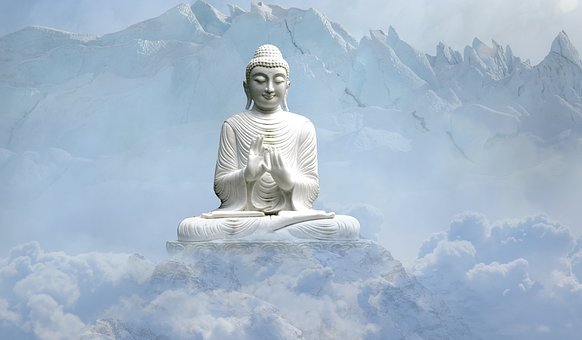During the weekend of July 29-31, the Association for Baha’i Studies for North America held its annual conference through a virtual platform for the third consecutive year since the beginning of the COVID-19 pandemic.
This year’s conference did not adopt a single theme and instead invited presenters and groups to reflect on excerpts from a recent letter from the Universal House of Justice, the governing body of the global Baha’i community. , discussing the relationship between academic and professional discourses and efforts to “contribute to discourses that influence the direction that these advances take.”[spirituel et matériel]”.
As the conference program was offered through a virtual platform, it was possible to obtain a greater participation. Indeed, about 3000 people from more than 40 countries were able to participate. They had access to pre-recorded presentations followed by live sessions, during which participants and presenters explored the themes of the presentations in informal discussions. This year, more than half of the presentations were made by groups, the result of collective learning projects, such as reading or working groups, the activities of which are encouraged by the Association for Bahá’í Studies during the months between its annual conferences.
Presentations covered a range of topics from academic disciplines such as the arts, political science, law, history, environmental science, urban planning, African studies and religious studies. According to the framework of the conference, the presenters sought in each address to state “the implications of the teachings [bahá’ís] for [leur] area of activity”, to express a “Bahá’í perspective on matters relevant to the advancement of humanity”, and to focus on “the transcendence of differences, the harmonization of perspectives and the promotion of the use of consultation” through lively discussions.
Following on from the keynote address by former member of the Universal House of Justice, Mr. Firaydoun Javaheri, the conference made it clear that participation in academic and professional discourse is an essential dimension of service that is consistent with other areas of activity of the Bahá’í community, including community building activities and social action. Mr. Todd Smith, a member of the conference’s executive committee, expressed the following thought: “Although it is preferable to come together to learn in person, the conference affirmed that it is possible to create stimulating online spaces that seek to transcend differences, harmonize perspectives, and promote the use of consultation to advance the intellectual life of the community. Mr. Smith said that next year’s conference will be held in person, with many aspects offered to those who wish to participate online.
This year’s conference also benefited from the rich contribution of experts from outside the Baha’i community. Professor John Borrows, Canada Research Chair in Indigenous Law at the University of Victoria, presented ideas on the role of the local community in building relationships. He explained that by learning to live together according to spiritual principles, we can learn lessons from the natural world, the sacred teachings of divine messengers, and scientific research. As the natural world precedes our existence as humans, we have the opportunity to learn from the Creator in “the winds, the waves, the pulses, the vibrations, the drones, the barks, the wines, the growls, the calls and songs… [dans lesquels] the Creator inserted the sounds of the more than human world”. Professor Borrows said that “with their language and their practices, the Anishinaabe look to the natural world and find there principles that we humans could then take up and use to guide us as standards, principles, authority, criteria, measures, signposts, beacons, to regulate our affairs and resolve our disputes”.
Ms. Azza Karam, member of the UN Secretary-General’s High-Level Advisory Board on Effective Multilateralism, and Secretary General of Religions for Peace, explored the role of religion in global governance in a conversation with Daniel Perell , a representative of the Baha’i International Community in New York. Ms. Karam explained that religious institutions, religious non-governmental actors, faith communities and individuals have a lot to contribute to solving the current problems facing humanity, as many of them are primary providers of caretakers, custodians of vast tracts of land and voices of moral authority held in high esteem by many peoples of the world. The need for such participation is particularly acute at a time when governments, including those of rich countries, are struggling to meet the basic needs of their people. At the same time, Ms Karam said that religious institutions must be held to the same standards as governments to ensure that people of different faiths or without faiths receive fair and equitable treatment.
While acknowledging the serious challenges faced by millions of people around the world, Ms. Karam expressed her hope for the future, based on the signs of collaboration between different faith communities and the participation of young people observed at the grassroots: I see remarkable resilience of communities in very difficult times. I see a movement towards faith which does not consist in instrumentalizing it, but in finding strength in it. I see a greater willingness to come together based on our commonalities as human beings and as societies. I also see a remarkable resilience in our cultures, our art, our poetry and our films. We can easily get caught up in the darkness, but we also need to understand that right next to it is a remarkable form of human resilience. »
Pre-recorded presentations from this year’s conference program are available for registration on the Association for Baha’i Studies website. Presentations and additional material will be available on the conference website until the end of September.
Association for Baha’i Studies conference features collaborative projects

